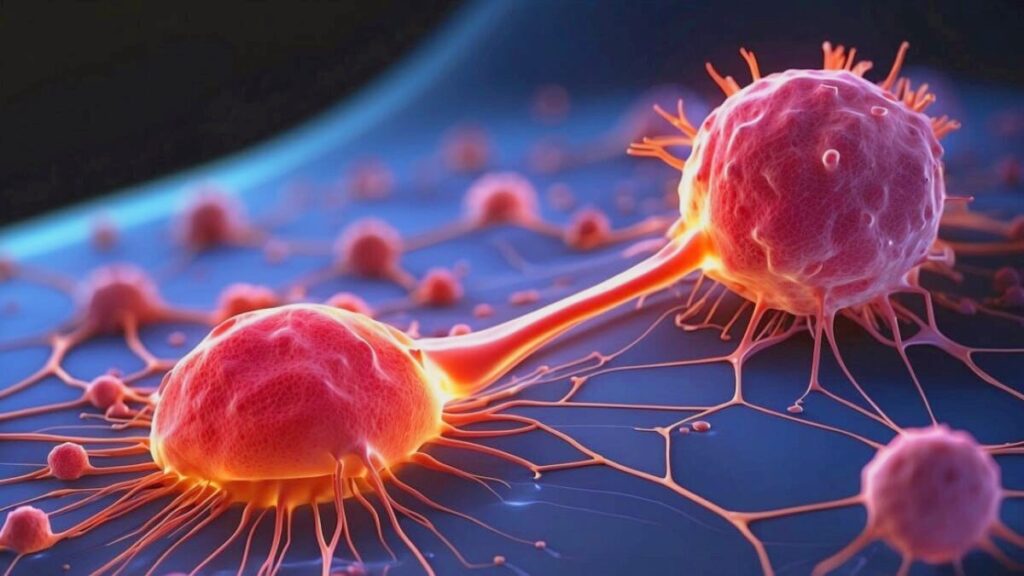New research has uncovered the ingenious ways cancer cells adapt to hostile environments, revealing their ability to thrive even under the most challenging conditions. Scientists have delved into the metabolic strategies tumors use to outwit chemotherapy, potentially paving the way for more effective treatments in the future.

Tumor Metabolism and Chemotherapy Resistance
Cancer cells rely on rapid metabolism to fuel their growth and reproduction. Many chemotherapies target this weakness, particularly by disrupting the synthesis of pyrimidines—key building blocks of RNA and DNA. These pyrimidines are crucial for producing uridine nucleotides, which serve as the primary energy source for rapidly dividing cancer cells.
Three drugs commonly used in such treatments—raltitrexed, N-(phosphonacetyl)-l-aspartate (PALA), and brequinar—aim to starve cancer cells by blocking pyrimidine production. This disruption theoretically forces the cells into apoptosis, a self-destructive process that halts tumor growth.
However, tumors often inhabit low-glucose environments, known as tumor microenvironments, where they demonstrate remarkable resilience. A study led by researchers at NYU Langone Health and its Perlmutter Cancer Center has illuminated how cancer cells exploit these conditions to resist chemotherapy.
Low-Glucose Environments: A Hidden Ally for Cancer
In glucose-deprived environments, cancer cells conserve their uridine nucleotide stores, effectively evading the intended effects of chemotherapy. Normally, these nucleotides are consumed to support genetic replication and cellular energy production. Yet, when pyrimidine synthesis is disrupted, cancer cells slow their nucleotide consumption, prolonging their survival.
Researchers discovered that glucose scarcity impedes the conversion of one uridine form, UTP, into UDP-glucose, a metabolically active form. This metabolic slowdown inadvertently shields cancer cells from exhausting their energy reserves, delaying apoptosis.
Additionally, glucose deprivation hinders the activation of two critical proteins—BAX and BAK—on the surface of mitochondria. These proteins play a vital role in initiating mitochondrial disintegration, a key step in triggering apoptosis. Without their activation, the chain reaction leading to cell death stalls, allowing cancer cells to persist.
Implications for Treatment Strategies
The study provides crucial insights into how altered tumor microenvironments influence chemotherapy outcomes. Understanding the interplay between glucose levels and cancer cell metabolism opens doors to innovative therapeutic approaches.
According to Dr. Minwoo Nam, the study’s lead investigator, “Our research sheds light on how cancer cells adapt to low-glucose conditions, minimizing chemotherapy’s impact. This knowledge could guide the development of therapies that overcome these metabolic defenses.”
Dr. Richard Possemato, a senior investigator, adds, “By targeting the unique metabolic behaviors of cancer cells in low-glucose environments, we can design treatments that enhance chemotherapy’s effectiveness. This could involve manipulating cancer cells to mimic their responses in glucose-rich settings.”
Future Directions
The findings suggest potential avenues for improving cancer treatments:
- Combination Therapies: Integrating existing chemotherapies with drugs that modulate cancer cell metabolism could enhance their efficacy. For example, experimental drugs like Chk-1 and ATR inhibitors may trigger apoptosis more effectively in low-glucose conditions.
- Diagnostic Tools: Tests could be developed to predict how cancer cells respond to specific therapies based on their metabolic profiles, allowing for personalized treatment plans.
- Genetic Targeting: By identifying key genes involved in pyrimidine synthesis, researchers could pinpoint vulnerabilities in cancer cells, leading to targeted interventions.
Groundbreaking Study Methods
The research involved scanning over 3,000 genes linked to cancer cell metabolism to identify those essential for survival in low-glucose environments. Experiments focused on how different clones of lab-grown cancer cells reacted to chemotherapy under glucose-limited conditions.
The team found that genes central to pyrimidine synthesis played a critical role in enabling cancer cells to withstand glucose scarcity and chemotherapy. This discovery highlights the importance of this metabolic pathway in tumor survival and resistance.
